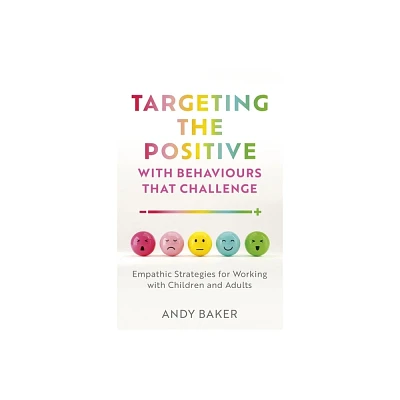Home
Targeting the Positive with Behaviours that Challenge: Empathic Strategies for Working Children and Adults
Loading Inventory...
Barnes and Noble
Targeting the Positive with Behaviours that Challenge: Empathic Strategies for Working Children and Adults
Current price: $32.95


Barnes and Noble
Targeting the Positive with Behaviours that Challenge: Empathic Strategies for Working Children and Adults
Current price: $32.95
Loading Inventory...
Size: Paperback
*Product Information may vary - to confirm product availability, pricing, and additional information please contact Barnes and Noble
Unravel the complexities of effectively managing behaviours that challenge through the 6-stage Target model. The 6 stages offer an empowering tool kit that builds upon positive skills and abilities when working with individuals under some form of supervision or care. This includes children in home, care or school environments, and adults that need support related to mental health disorders, autism, learning disabilities or dementia.
With a focus on:
· Identifying behaviours
· Understanding and empathising
· Pro-active planning
· Recognizing escalation
· Responding appropriately
· Learning from incidents
The chapters provide significant information about why difficult situations arise and understanding people. A person-centred approach increases competency, confidence, resilience, and empathy so that caregivers feel more assured and settled about what they do. These effective methods build trusting relationships, teach new skills, and de-escalate situations safely, improving outcomes for both those who give support and those who receive it.
With a focus on:
· Identifying behaviours
· Understanding and empathising
· Pro-active planning
· Recognizing escalation
· Responding appropriately
· Learning from incidents
The chapters provide significant information about why difficult situations arise and understanding people. A person-centred approach increases competency, confidence, resilience, and empathy so that caregivers feel more assured and settled about what they do. These effective methods build trusting relationships, teach new skills, and de-escalate situations safely, improving outcomes for both those who give support and those who receive it.


















